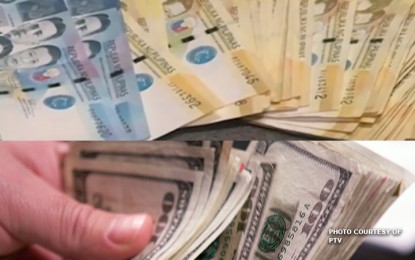
MANILA – Strong domestic fundamentals, along with the gradual reopening of the domestic economy and the continued build-up of foreign reserves, are expected to further boost the Philippine peso’s strength.
In a briefing Friday, BSP Governor Benjamin Diokno said the peso continues to show resilience even during the pandemic as the “market continues to focus on the Philippines’ strong macroeconomic fundamentals.”
As of Dec. 10, 2020, the local currency has appreciated by around 5.35 percent against the greenback after it closed the trade at PHP48.07 vis-à-vis its PHP50.41 closing level in end-2019, he said.
On Thursday, the local currency ended the trade at 48.045 to a US dollar.
Economic managers’ peso-US dollar assumption for this year has been revised to PHP48-50 while it is between PHP48-53 for 2021-2022.
Diokno attributed these developments partly to the government’s ability to manage its debt, citing the Philippines' favorable ranking among emerging market economies.
Other factors that support the peso include the gradual recovery of foreign direct investments (FDI) and remittances, the affirmation of the country’s credit ratings, increase in foreign exchange reserves, the national government’s US dollar deposits with the central bank, and gains from BSP’s investments overseas.
“The BSP believes that the key to keeping the stable performance of the peso is to preserve the country’s sound macroeconomic fundamentals and continued adherence to a market-determined foreign exchange policy,” Diokno said.
For 2021, he said the local currency “should continue to reflect emerging demand and supply conditions in the foreign exchange market as well as continued soundness in the country’s macroeconomic fundamentals.”
Diokno, however, said risks remain and these include concerns on the upticks in coronavirus disease (Covid-19) infections, OFW deployment, tourist arrivals, and the availability and deployment of Covid-19 vaccines.
Among the positive impacts of the peso’s appreciation against the greenback include the drop in the peso equivalent of the government and private sector’s foreign debt.
“In this sense, when the peso appreciates, then the country will spend less pesos for servicing foreign-denominated debt, hence, enabling it to realize savings, which can then be used to fund essential public expenditures,” Diokno added. (PNA)
